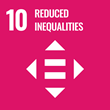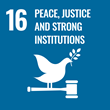Project information
Economic Decision-Making: Hormonal Determinants and Ritualized Behavior
- Project Identification
- MUNI/G/0985/2017
- Project Period
- 3/2018 - 6/2021
- Investor / Pogramme / Project type
-
Masaryk University
- Grant Agency of Masaryk University
- INTERDISCIPLINARY - Interdisciplinary research projects
- MU Faculty or unit
-
Faculty of Economics and Administration
- Tommaso Reggiani, PhD
- Ing. Diya Elizabeth Abraham, Ph.D.
- Ing. Barbora Baisa
- doc. PhDr. Lubomír Cingl, Ph.D.
- Ing. Miloš Fišar, Ph.D.
- Other MU Faculty/Unit
- Faculty of Arts
- Other MU Faculty/Unit
- Central European Institute of Technology
Ongoing interdisciplinary research in economics is exploring how hormones influence individual decision-making such as fairness in monetary allocations, cooperation, choices under risk and uncertainty, trust in financial relationships or cheating. For example, higher levels of testosterone have been correlated to more competitive and risky economic strategies while cortisol to more selfish decisions.
Research is based on fully controlled experimental exercises. This canonical experimental setting allows manipulating for a short period one hormone at the time (via stimulus or administration) in order to isolate the correspondent short-term decisional response in relation to different economics dilemmas. In the real world, hormonal variations can assume more complex configurations: (i) frequently they involve a range of multiple hormones at the same time, (ii) hormonal variations may last for longer periods of time.
To expand the boundaries of the research about the impact of hormones on economic decision-making, we plan to focus on more complex hormonal variations exploiting natural “shocks” in hormonal levels. These intense variations are related to specific biological events in women’s life such as the menstrual cycle, pregnancy, breastfeeding, depression, menopause. These “shock” episodes - contrasted to adequate control groups - will offer us the opportunity to analyze the effect of hormones on economics decision-making in a much more salient and less reductive context.
In order to better understand the effect of hormones on economic decisions, we will make a step further analyzing ritualized behavior that can be observed during the decision-making phase before the final economic choice is made. Ritualized behavior is intuitively recognizable by its stereotypy: rigidity, repetition, and apparent lack of rational motivation. It is found in a variety of living conditions and customs. Ritualized behavior comes directly from the psychological Precaution System deputed to the detection of possible undesired outcomes.
A closer look at ritualized behavior can bring new information about the individual perceptions generated by the different typologies of economics dilemmas. It will reveal supplementary elements linked to the decision process that cannot be captured merely focusing on the analysis of the economic outcomes.
Sustainable Development Goals
Masaryk University is committed to the UN Sustainable Development Goals, which aim to improve the conditions and quality of life on our planet by 2030.
Publications
Total number of publications: 18
2024
-
Designing Donation Incentive Contracts for Online Gig Workers
Journal of Business Ethics, year: 2024, volume: 190, edition: March, DOI
2023
-
Ovulatory shift, hormonal changes, and no effects on incentivized decision-making
JOURNAL OF ECONOMIC PSYCHOLOGY, year: 2023, volume: 98, edition: October, DOI
2022
-
Broadband Internet and social capital
JOURNAL OF PUBLIC ECONOMICS, year: 2022, volume: 206, edition: February, DOI
-
Effects of predictable behavioral patterns on anxiety dynamics
Scientific Reports, year: 2022, volume: 12, edition: 1, DOI
-
Rituals as signals of mate quality
Current Research in Ecological and Social Psychology, year: 2022, volume: 3, edition: 100048, DOI
-
The political cost of sanctions: evidence from COVID-19
HEALTH POLICY, year: 2022, volume: 126, edition: 9, DOI
2021
-
Effects of extreme ritual on physiological and psychological health
Year: 2021, type: Appeared in Conference without Proceedings
-
Lab-Sophistication: Does Repeated Participation in Laboratory Experiments Affect Pro-Social Behaviour?
GAMES, year: 2021, volume: 12, edition: 1, DOI
2019
-
Does culture change understanding of kneeling display in religious ritual?
Year: 2019, type: Appeared in Conference without Proceedings
-
Effects of Kavadi ritual on mate attractiveness
Year: 2019, type: Appeared in Conference without Proceedings


